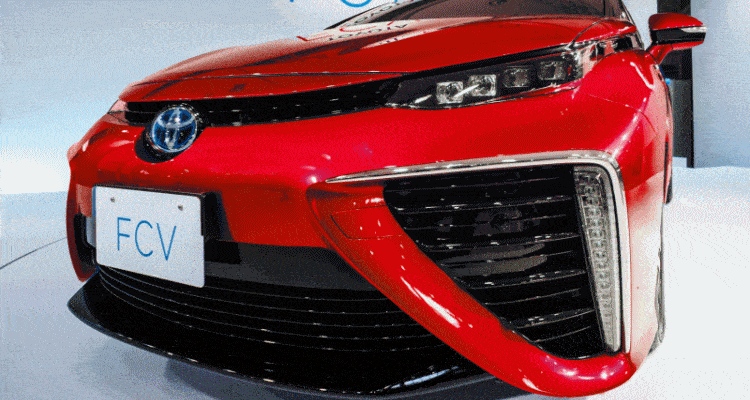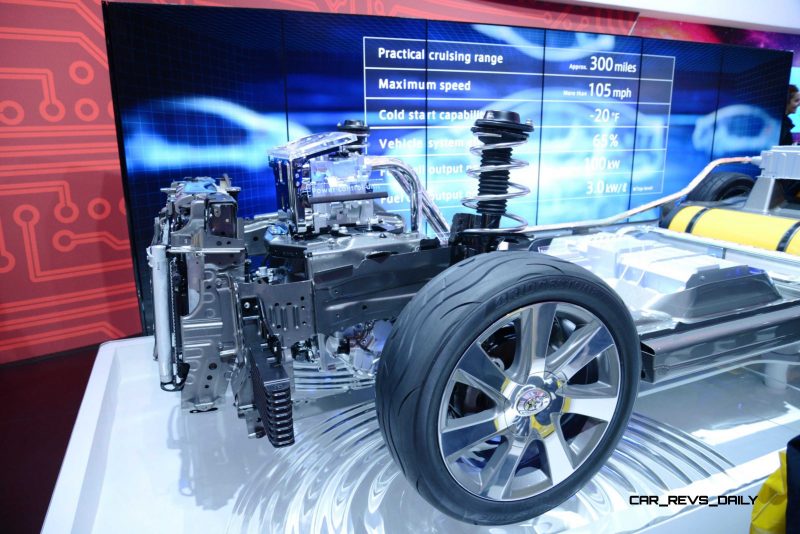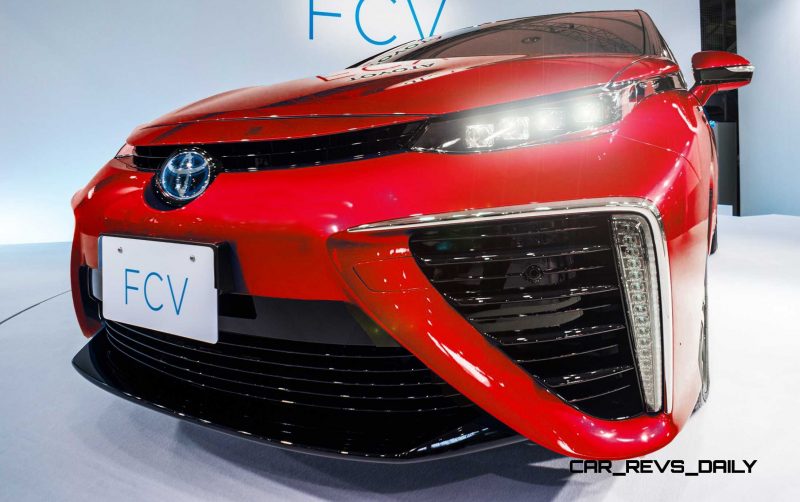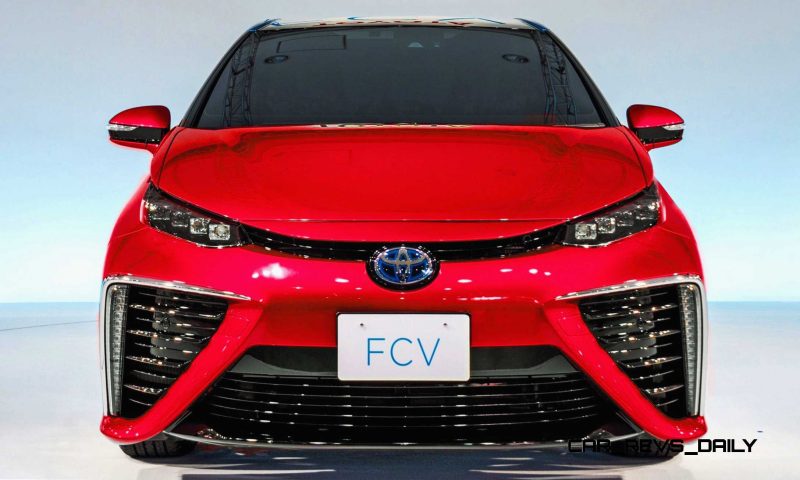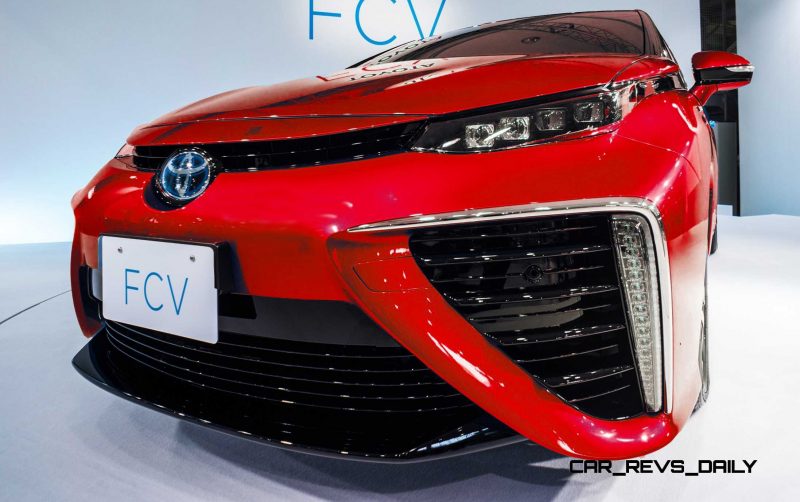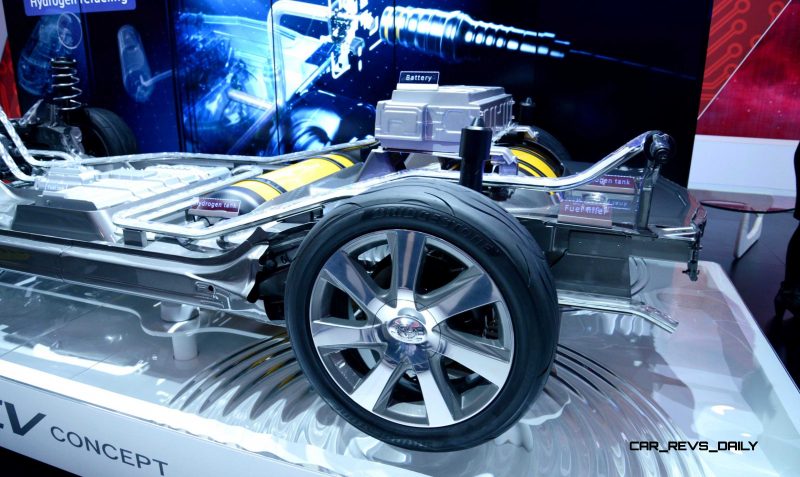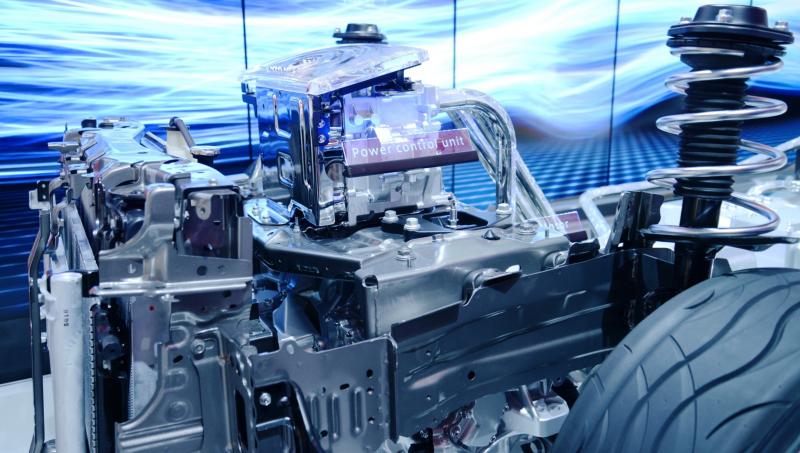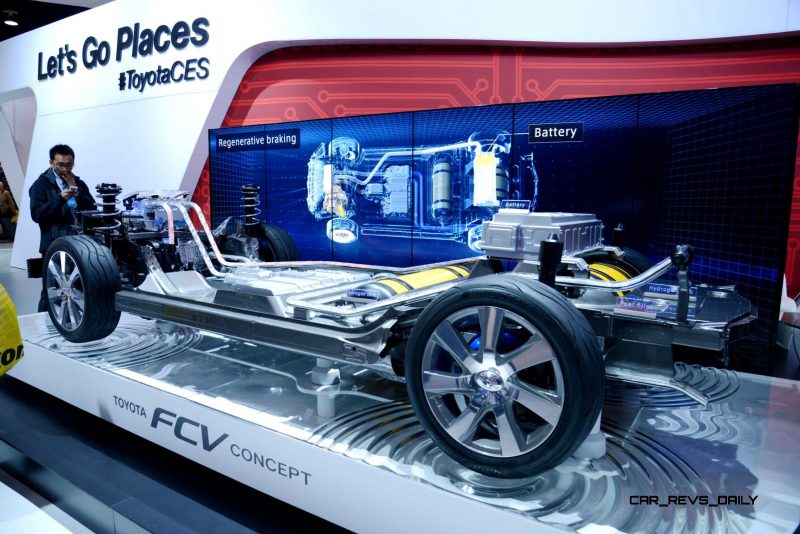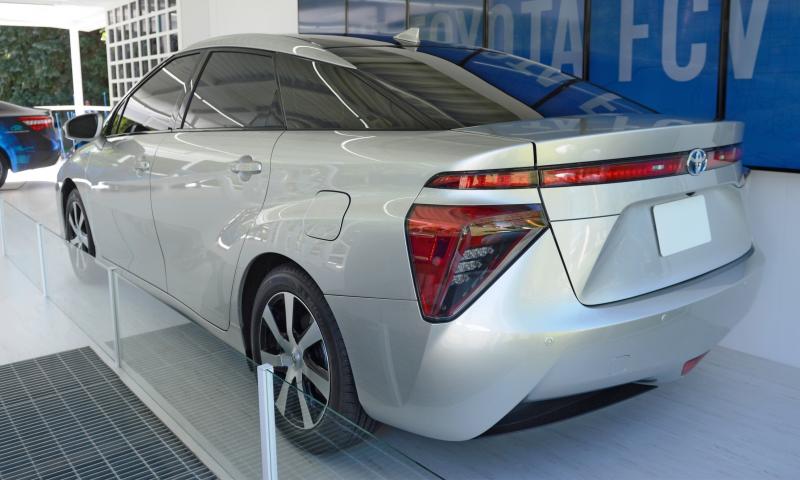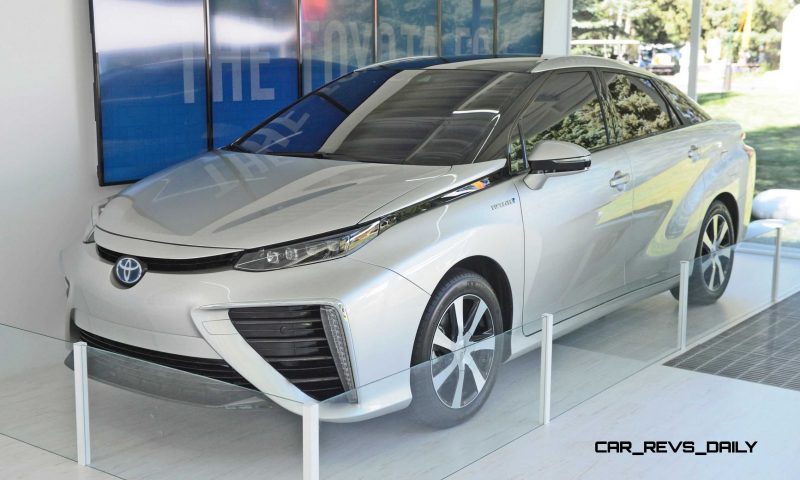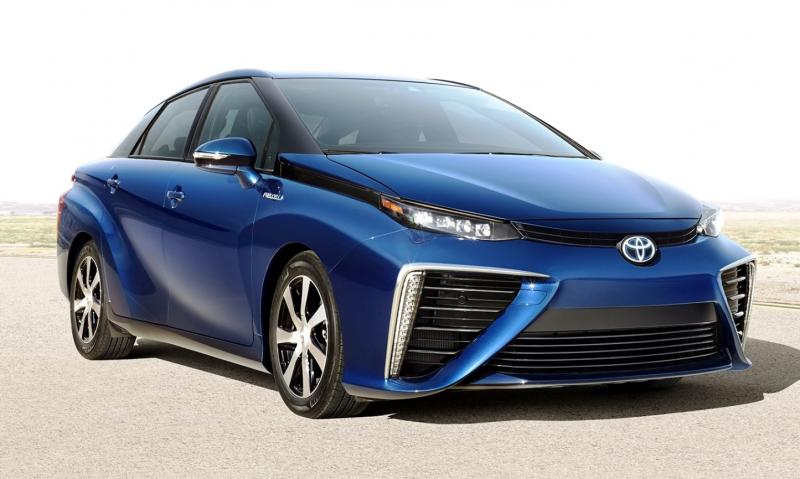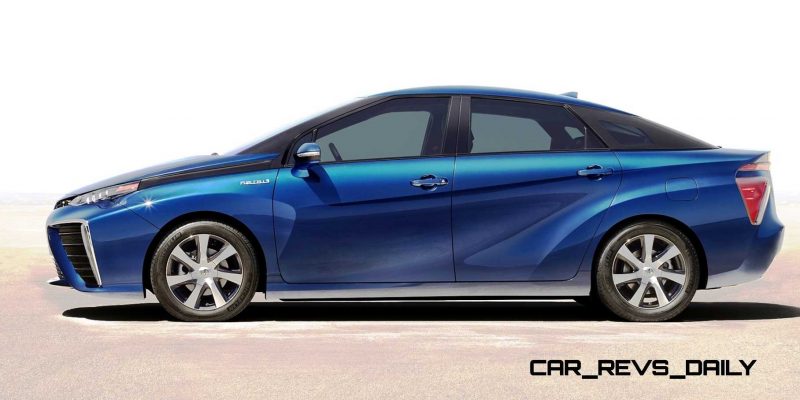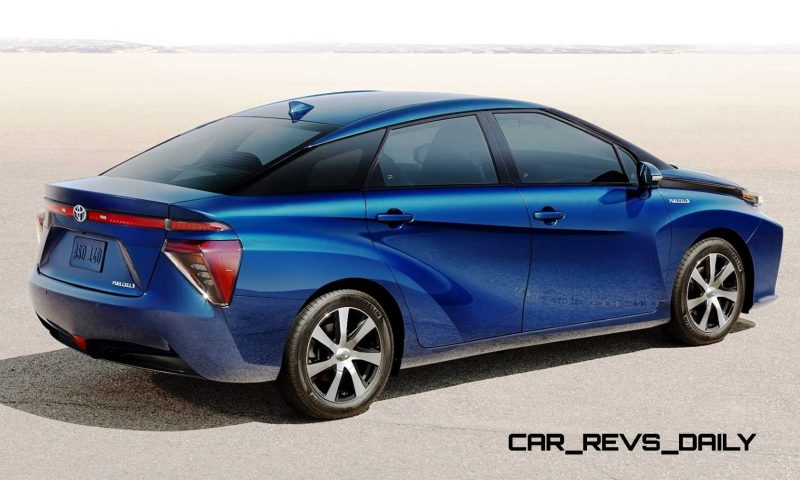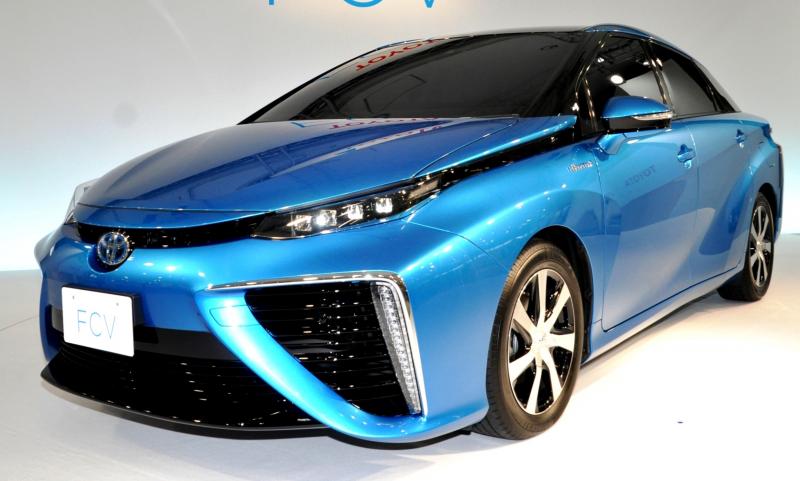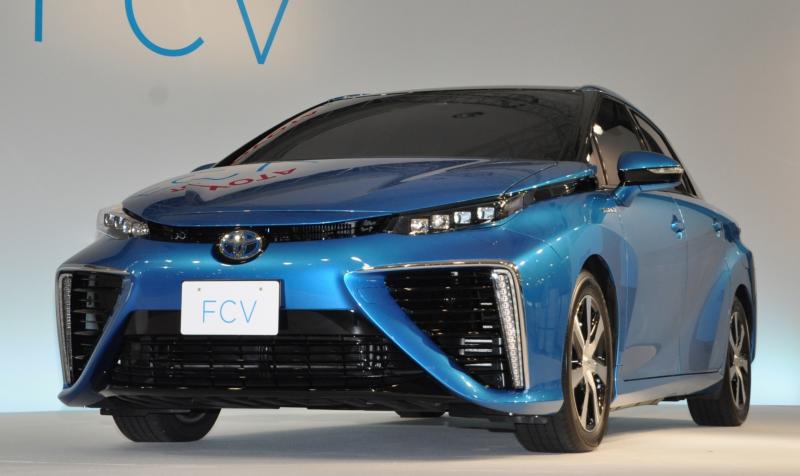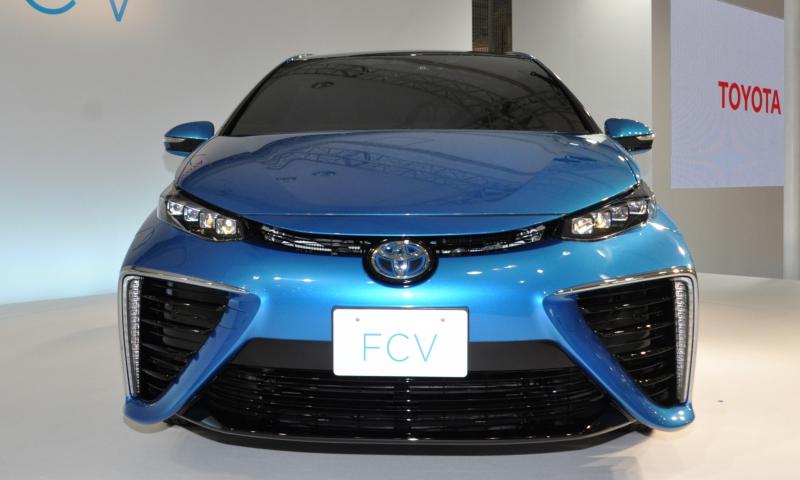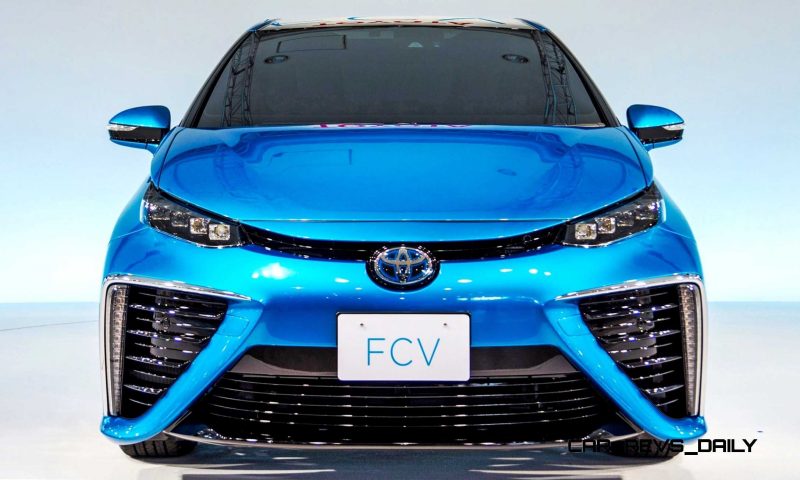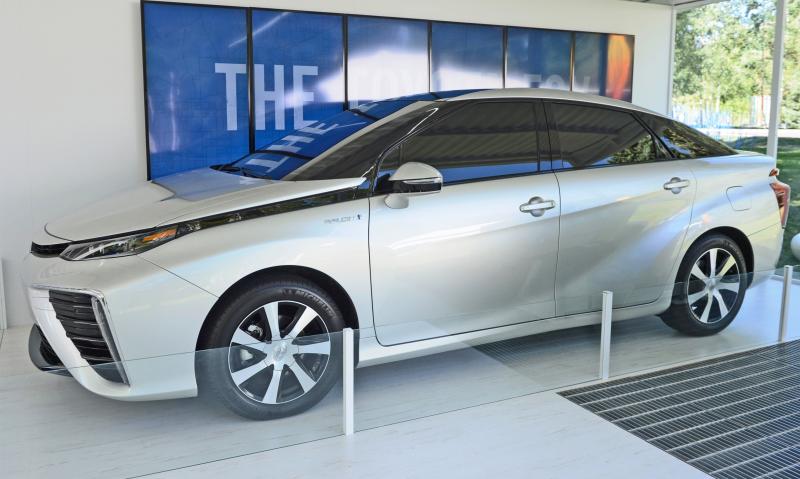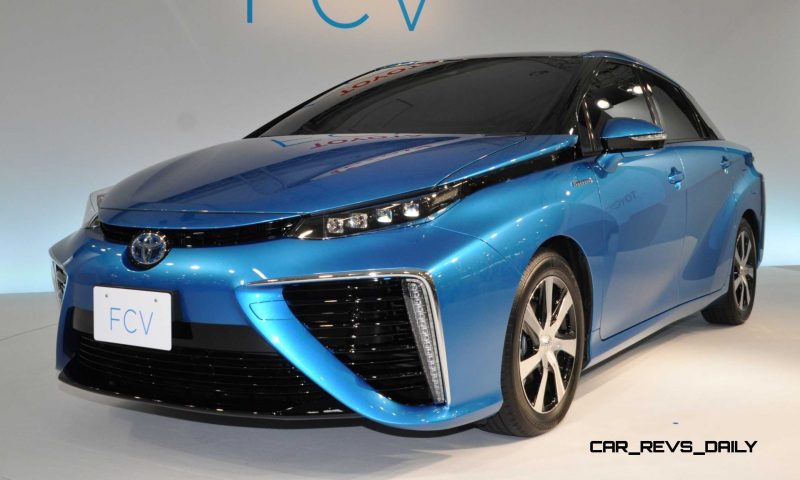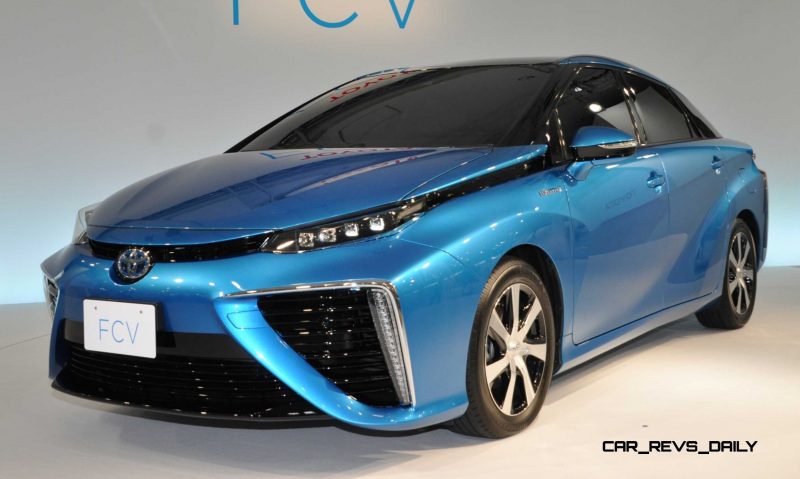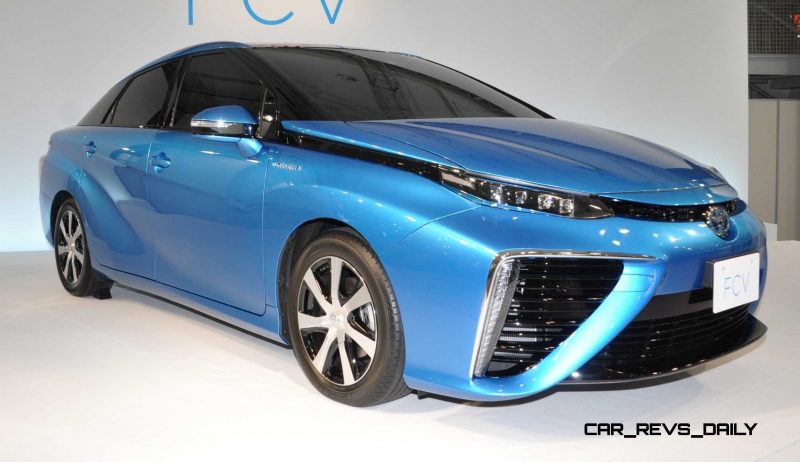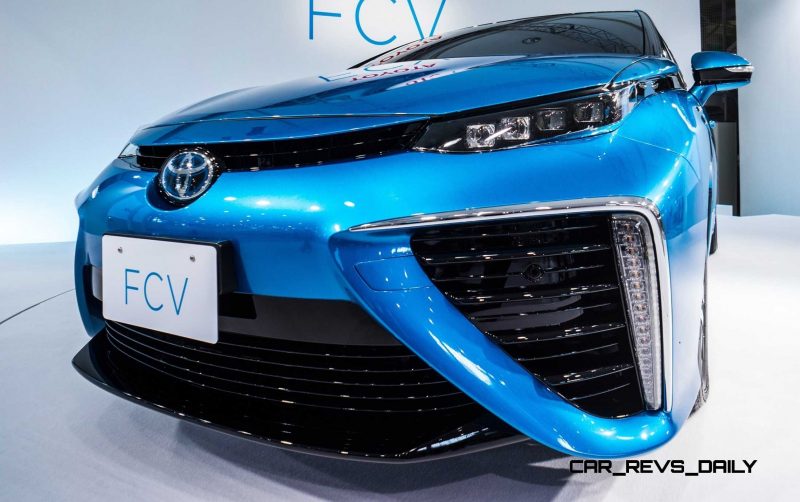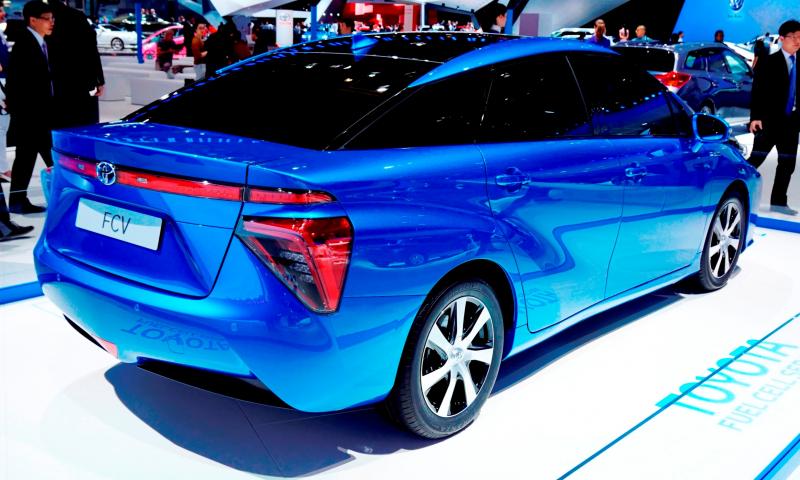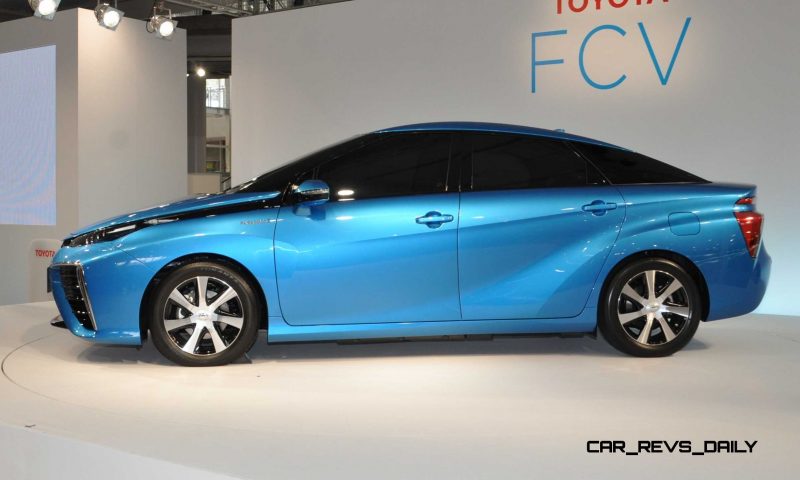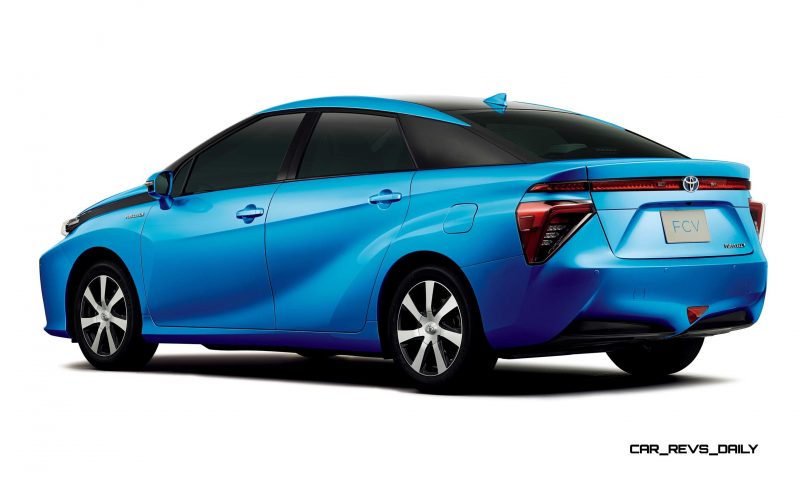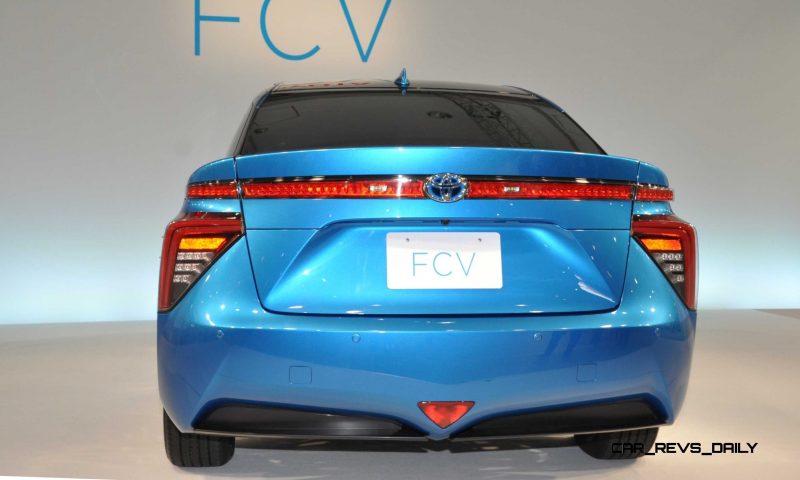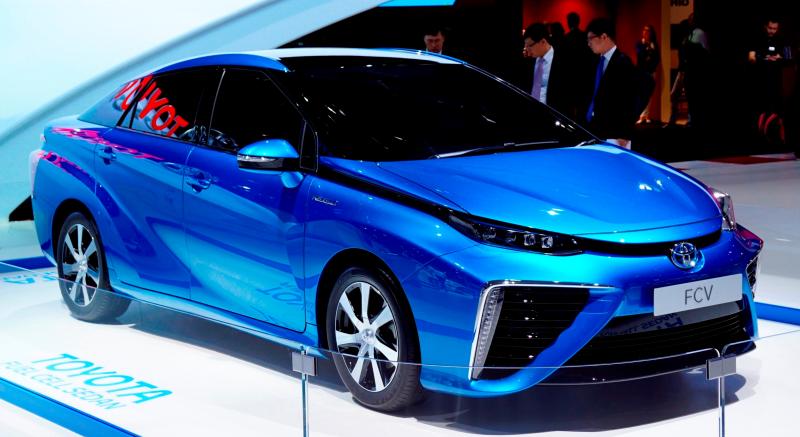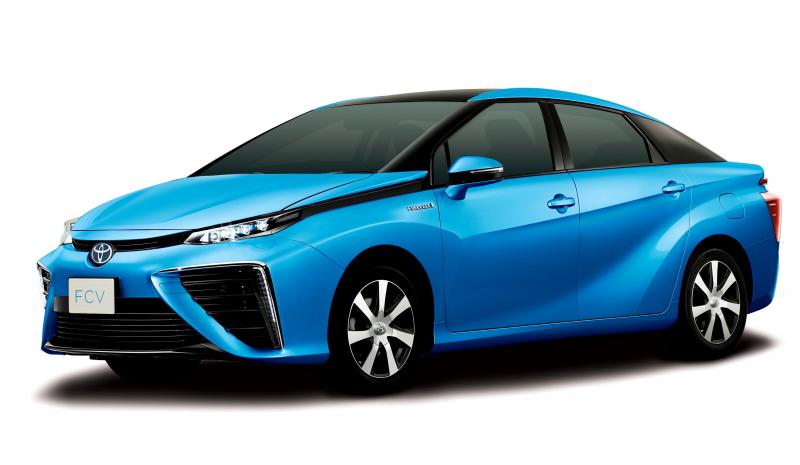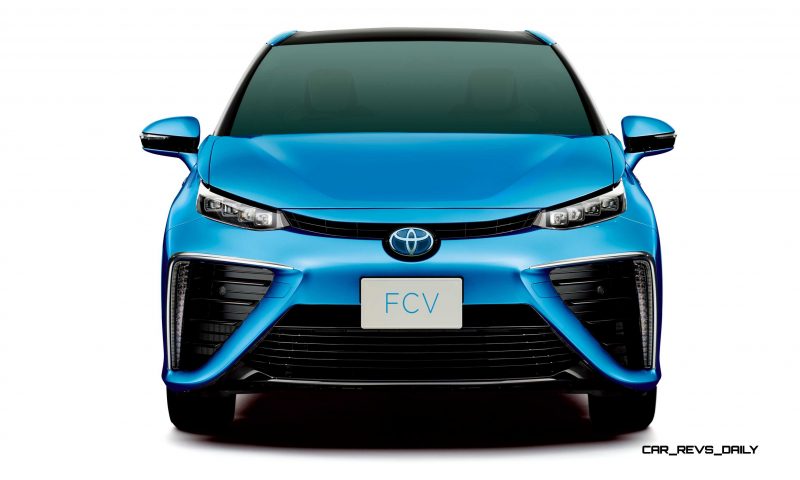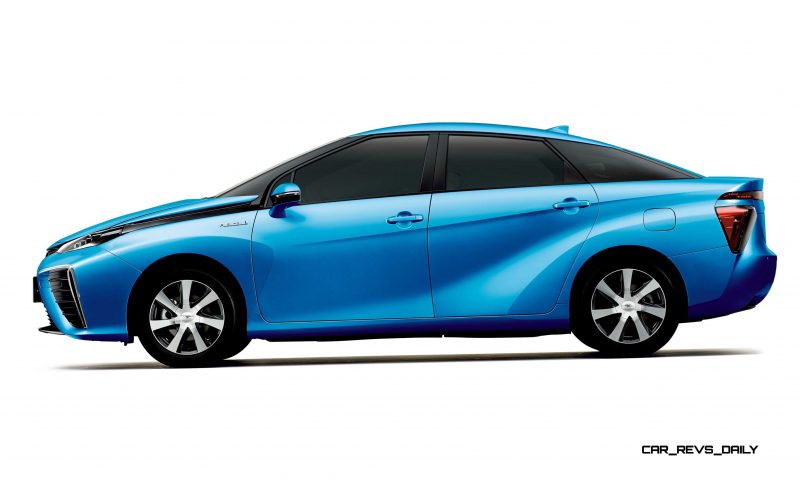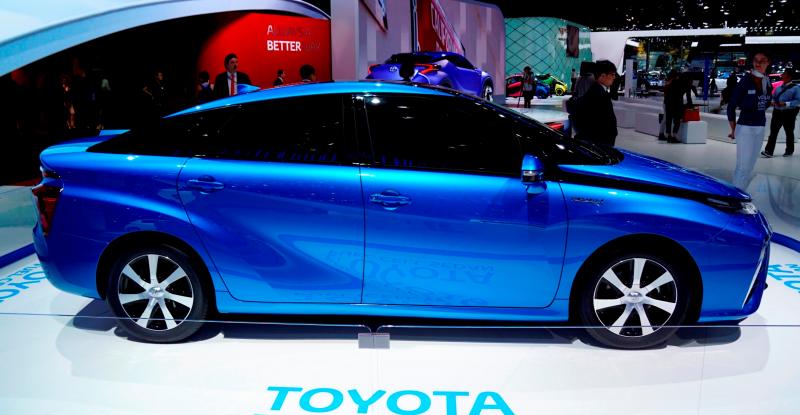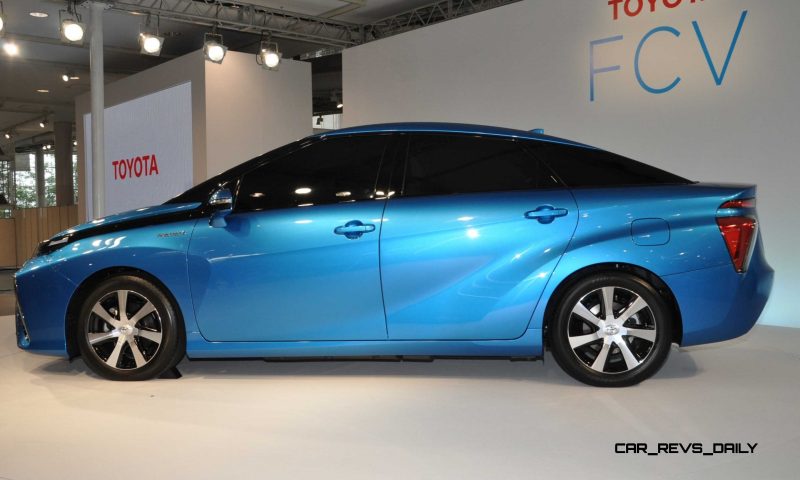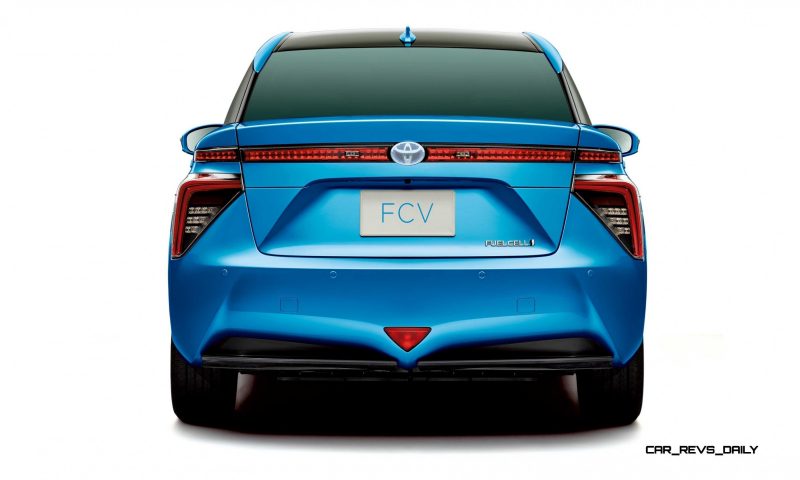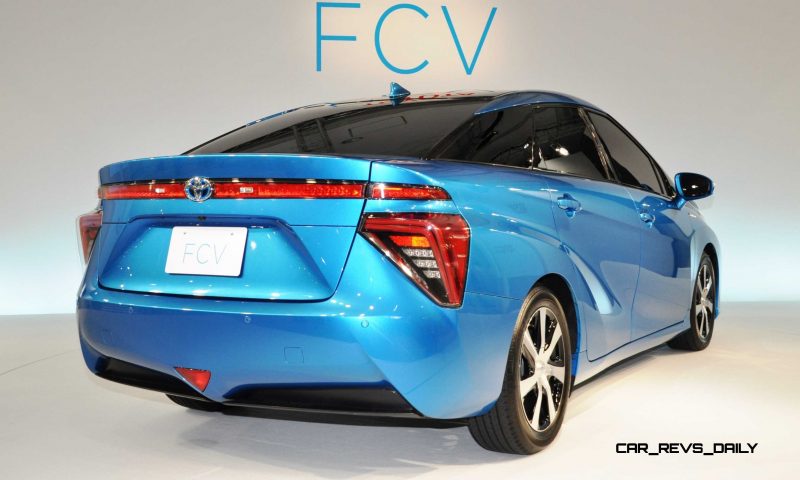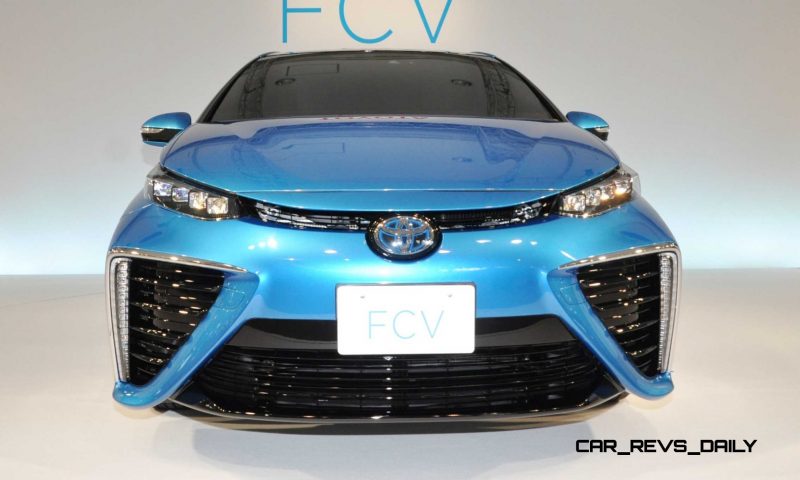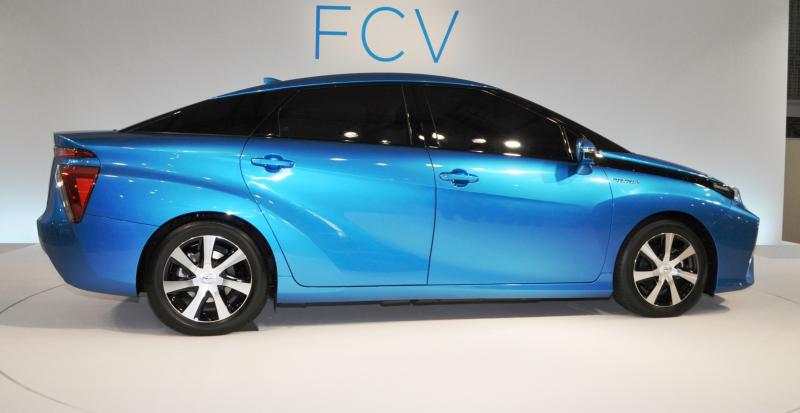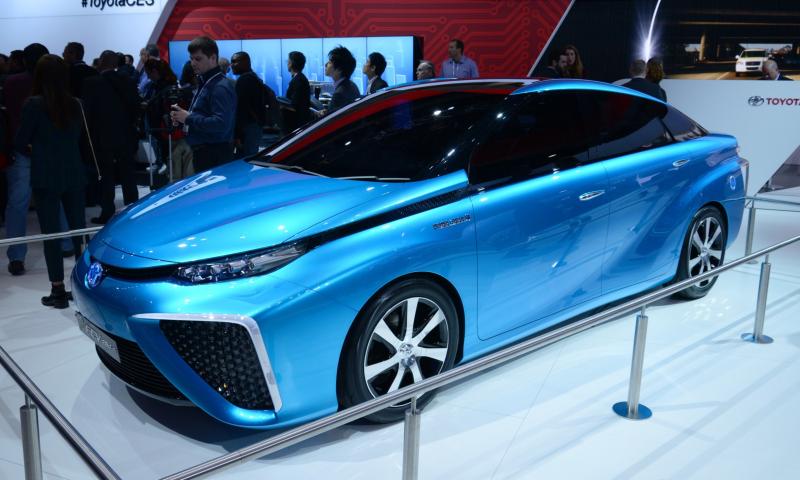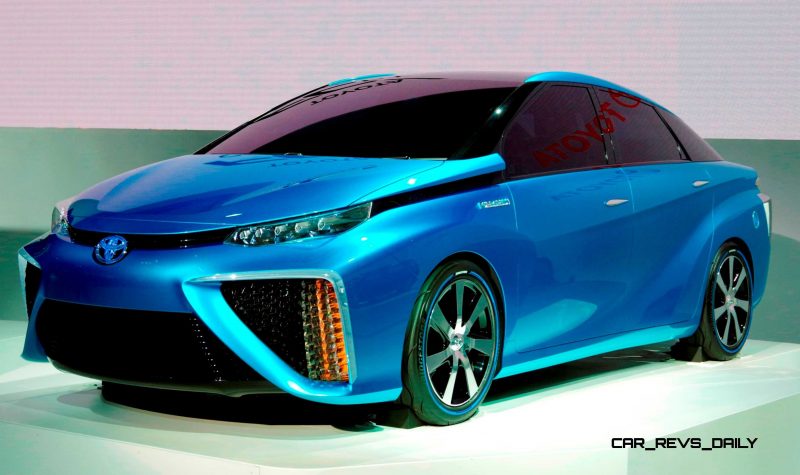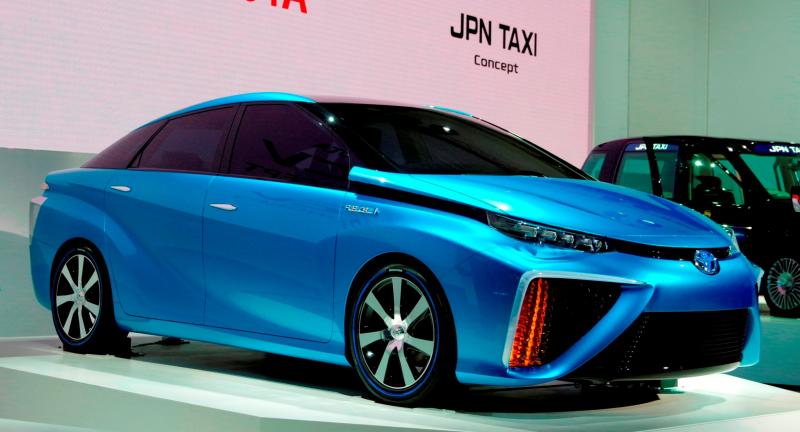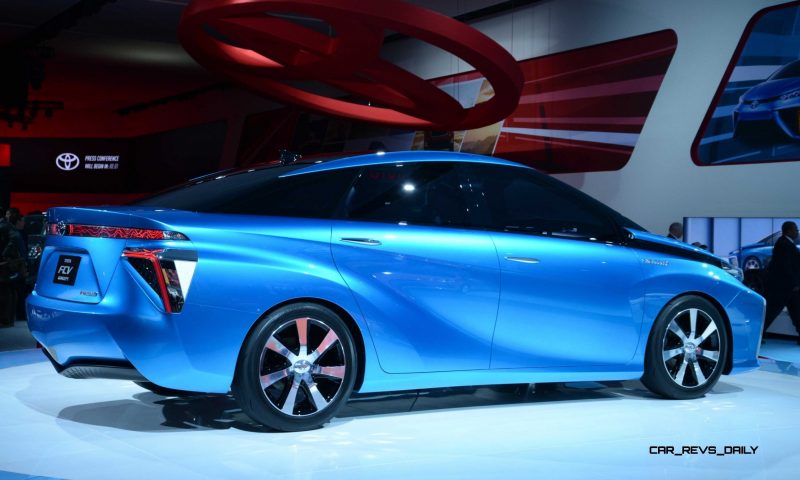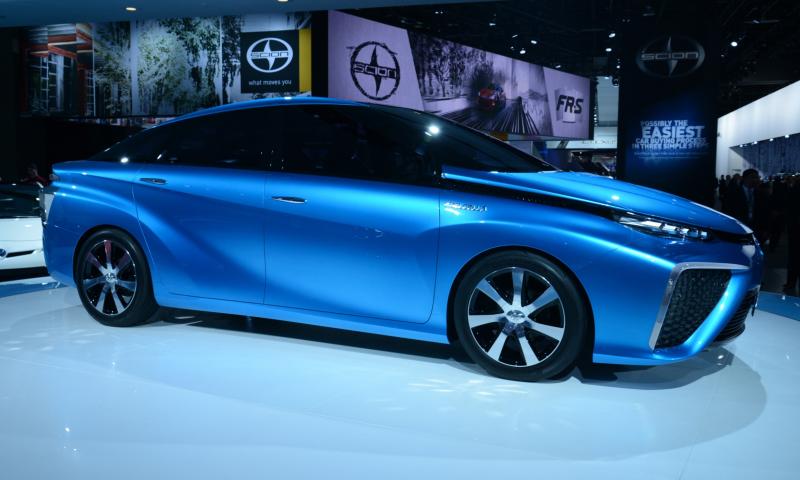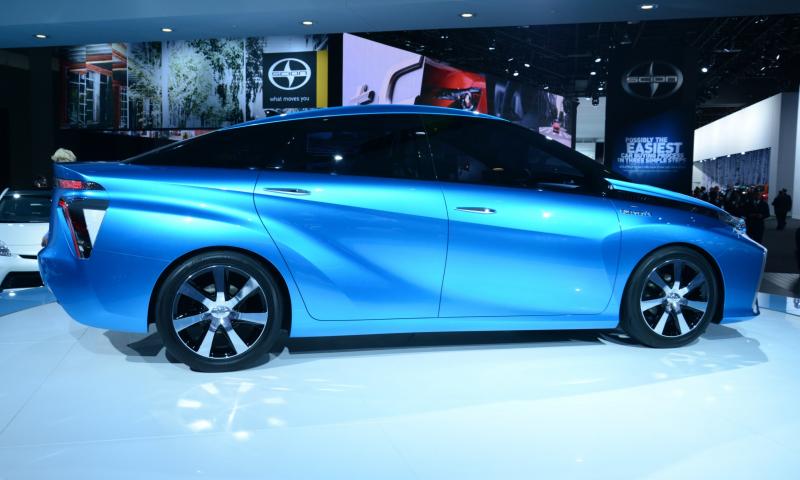Are those typos in the headline? No, just some attempted cleverness. The FCV is an EV and H20 event horizon.
VAPORWARE?
Fuel cells helped define the term vaporware.
Vaporware is now a ubiquitous silicon valley description of long-term possibilities that are always on the distant horizon.
Part of the reason fuel cell Hydrogen vehicles have earned and propelled this bit of jargon is that their main byproduct is water vapor by converting hydrogen into electricity for a battery pack.
The other reason is that companies have been researching this technology for more and 30 years, with no production models to speak of so far.
The FCV looks set to change that by actually coming to US market in decent numbers by late 2015. Toyota has promised the car on sale in Japan by April 2015 – and is known for meeting deadlines. And also for taking years of losses in order to be out front on new EV tech. Look at the Prius. Its name itself means ‘Before US’ — or Before US carmakers, some have suggested.
LETS TALK NUMBERS
FCV’s max speed is 105-mph, with a practical range of 300-miles from a tank of hydrogen. Hydrogen fueling takes less than 90 seconds and a full tank should cost no more than $10 for retail consumers.
Overall vehicle efficiency is said to be 65-percent, more than double a Prius PHEV.
WHY TOYOTA MIGHT MAKE BANK ON FUEL CELLS
Make bank eventually while taking a loss at first. That’s the plan.
Aren’t Prius and its hybrid solution enough? Yes and no.
SuperPrius FCV will be a vanguard technology if Toyota has found a way to mass-produce the power unit. As popular as the Prius is with shoppers, for its first 15 years it also made Toyota a boatload of money via licensing the tech around to other companies. Ford, GM, Nissan and others have all purchased and licensed hybrid tech from Toyota at rich prices – only recently developing their own in-house solutions. Cars like the Tahoe Hybrid, Fusion Hybrid and Altima Hybrid? All Toyota battery, electric motor/transmission and power control units.
In terms of pricing for this long-rumored Super Prius? The Prius Plug-in retails for below $40,000 in its most-loaded guise. It is also the perfect platform-mate for an FCV via its large battery compartments and light and slippery exterior shape.
HOW MUCH ARE WE TALKING?
We would ballpark a price in the $60,000 range for the upcoming FCV, but this is totally speculative. Toyota will take a loss of more than $250,000 for every one sold at that price for the first five years or so. This tech is that revolutionary.
But the insights and clarity from the hyper-optimized FCV will also feed back into the fourth-generation Prius — which will arrive around or shortly after this new FCV hits the market.
We are even warming up to its design a little more than when first shown. The concept is a bit freakier than the production model, which tones down the LEDs up front a bit. Who knew – there can be too much of a good thing with LEDs.
FCV Concept
FCV Production Car
MAKES VOLT AND TESLA YESTERTECH
In terms of leap-frogging the Tesla’s of the world, the FCV has great potential to really change the hybrid game. It cuts much of the charging annoyance and constant plugging out of the equation.
And out the tailpipe? The cliche says…. fuel cells make nothing but water so pure you can fill up a glass right from the tailpipe.
FCV might actually stand for event horizon in tech terms.
2016 Toyota FCV
2014 Toyota FCV Concept
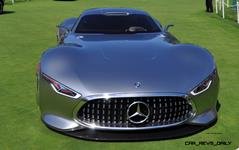
Tom Burkart is the founder and managing editor of Car-Revs-Daily.com, an innovative and rapidly-expanding automotive news magazine.
He holds a Journalism JBA degree from the University of Wisconsin – Madison. Tom currently resides in Charleston, South Carolina with his two amazing dogs, Drake and Tank.
Mr. Burkart is available for all questions and concerns by email Tom(at)car-revs-daily.com.

